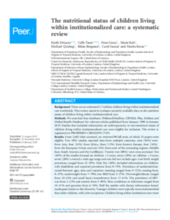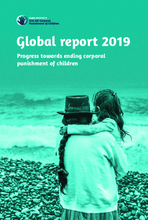Displaying 1621 - 1630 of 4424
This Podcast series explores the experiences of people who grew up in the care system from all over the world. It is presented by a care-leaver Thomas Mongan and an Advocate Peter Lane.
With the aim of improving provision of suitable care and the manner in which it is offered, the Caring for Children Moving Alone MOOC Taskforce (including BCN) has created a specialised Massive Open Online Course (MOOC). This MOOC aims to increase the knowledge and support improved practice of front line workers and others who make decisions about the care and best interest of children on the move every day.
"Orphanage tourism turns children into cash-generating commodities subject to the usual economic laws of supply and demand," says this article from New Europe.
This episode of The Brain Architects explores what “toxic stress” means, and what we can do about it.
This review from PeerJ aimed to evaluate currently available data on the nutrition status of children living within institutionalized care.
The Global Initiative to End All Corporal Punishment of Children has launched the Global Report 2019, tracking progress towards universal prohibition of corporal punishment.
This systematic review of qualitative research aimed to identify and synthesise the findings of relevant studies that documented the experiences of children in care in regard to their school experiences.
The aim of this review is to describe psychosis risk factors in adoptees, with a focus on difficulties with identity formation, identification with in-groups, attachment to parents, and coping with loss and with discrimination.
This systematic review of qualitative research aimed to identify and synthesise the findings of relevant studies that documented the experiences of children in care in regard to their school experiences.
"Orphanage tourism turns children into cash-generating commodities subject to the usual economic laws of supply and demand," say Peter Singer and Leigh Mathews in this commentary piece for Project Syndicate.


